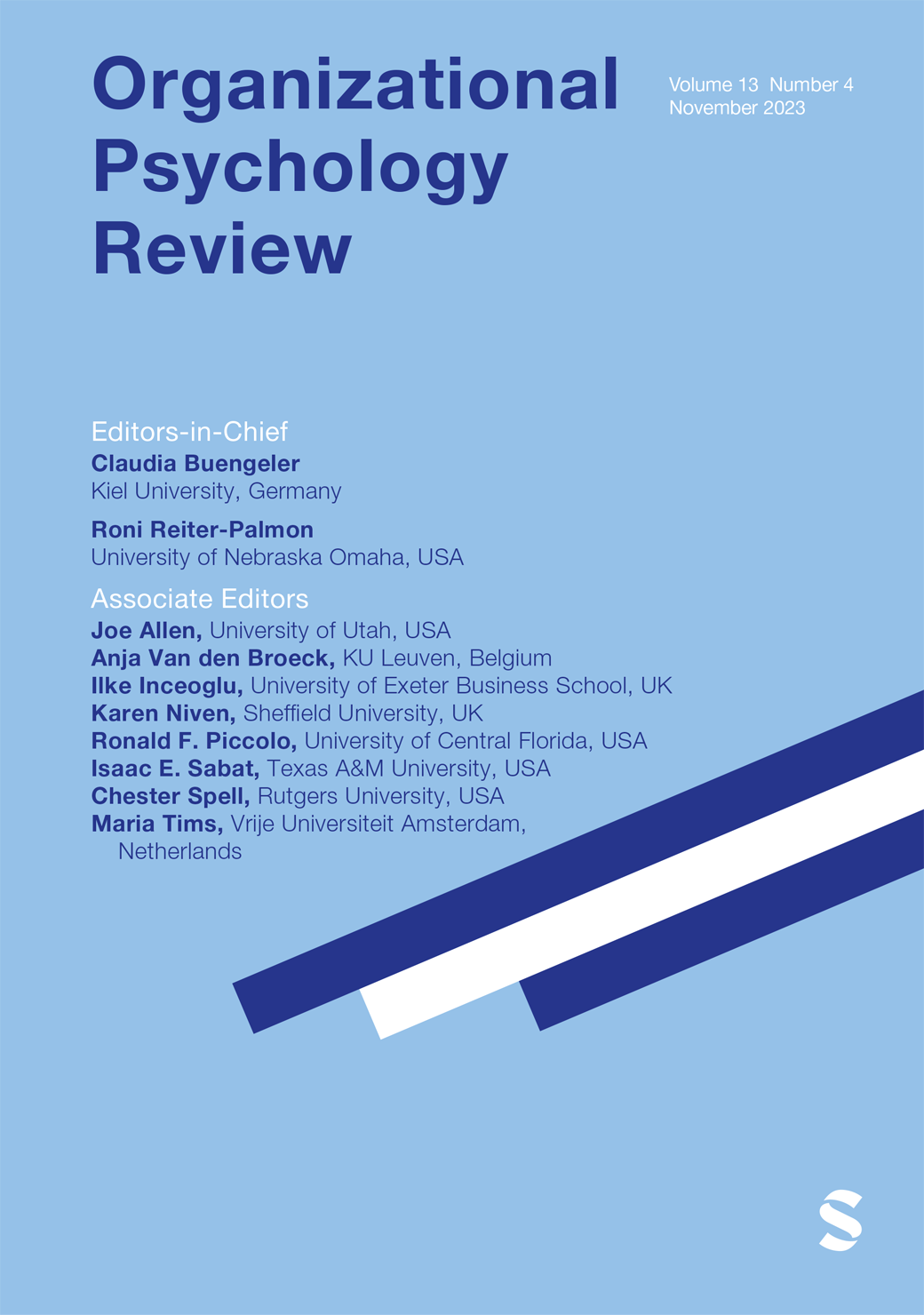The development of blended friendship in high leader-member exchange relationships: Mechanisms and consequences of a relational shift
IF 3.9
1区 心理学
Q2 MANAGEMENT
引用次数: 0
Abstract
Confusion persists about the overlap between high-quality leader-member exchange (LMX) relationships and personal friendships between a leader and a subordinate. How these notions differ, shift from one to the other, and what their consequences are remain unclear. This paper proposes a framework that examines the fundamental differences between high LMX relationships and friendships. We argue that when high LMX relationships shift toward friendships, they in fact shift toward blended friendships, where the leader and the subordinate concomitantly enact two distinct roles, worker and friend. These blended friendships are qualitatively different from high LMX and from friendships. We detail the process by which blended friendship develops in the context of high LMX relationships and identify the key variables and mechanisms that drive the emergence of such blended friendships. We then examine how subordinates’ well-being, job engagement, performance, and turnover may simultaneously benefit and suffer from their involvement in a blended friendship.在领导者与成员的高交换关系中发展混合友谊:关系转变的机制与后果
高质量的领导者-成员交流(LMX)关系与领导者和下属之间的个人友谊之间的重叠一直存在着混淆。这些概念有何不同,如何从一个概念转变为另一个概念,其后果又是什么,这些问题都还不清楚。本文提出了一个框架,研究高度 LMX 关系和友谊之间的根本区别。我们认为,当高水平的 LMX 关系向朋友关系转变时,它们实际上是向混合型朋友关系转变,在这种关系中,领导者和下属同时扮演着两种不同的角色--工作者和朋友。这种混合型友谊与高LMX关系和友谊有着本质的区别。我们详细介绍了在高LMX关系背景下混合友谊的发展过程,并确定了推动这种混合友谊出现的关键变量和机制。然后,我们将研究下属的福利、工作投入度、绩效和离职率是如何同时因参与混合式友谊而受益和受损的。
本文章由计算机程序翻译,如有差异,请以英文原文为准。
求助全文
约1分钟内获得全文
求助全文
来源期刊

Organizational Psychology Review
Multiple-
CiteScore
10.00
自引率
1.60%
发文量
25
期刊介绍:
Organizational Psychology Review is a quarterly, peer-reviewed scholarly journal published by SAGE in partnership with the European Association of Work and Organizational Psychology. Organizational Psychology Review’s unique aim is to publish original conceptual work and meta-analyses in the field of organizational psychology (broadly defined to include applied psychology, industrial psychology, occupational psychology, organizational behavior, personnel psychology, and work psychology).Articles accepted for publication in Organizational Psychology Review will have the potential to have a major impact on research and practice in organizational psychology. They will offer analyses worth citing, worth following up on in primary research, and worth considering as a basis for applied managerial practice. As such, these should be contributions that move beyond straight forward reviews of the existing literature by developing new theory and insights. At the same time, however, they should be well-grounded in the state of the art and the empirical knowledge base, providing a good mix of a firm empirical and theoretical basis and exciting new ideas.
 求助内容:
求助内容: 应助结果提醒方式:
应助结果提醒方式:


